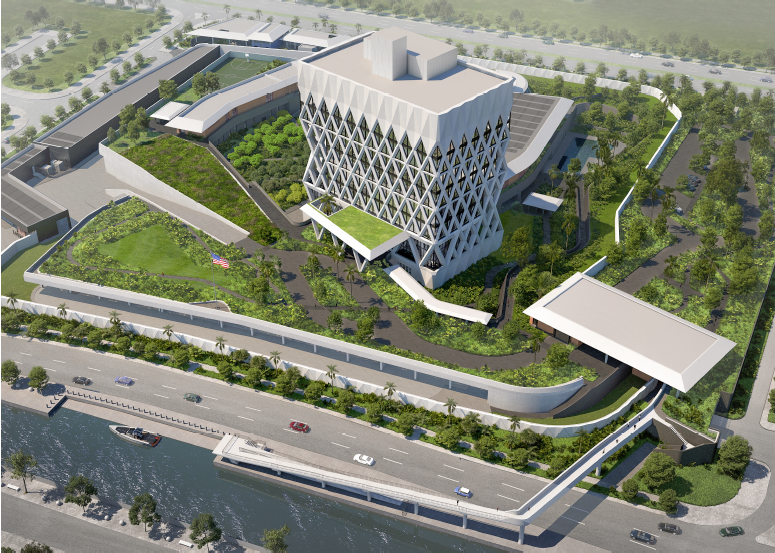In an earlier article captioned, One million homes with PropTech, extensive narrations were posited around the need for more entrepreneurs to expand their vision and horizon while thinking of how technology powers the end to end aggregation engagement. Some platform providers like Airbnb, Zumper and Opendoor among others were looked into as guides to what has worked in other climes and how startups in Africa can leapfrog while creating amazing solutions that really serves humankind.
This article focuses on how homes drastically improves the GDP of a country and simple technology leapfrogs that have eased such process in other climes. Residential properties contribute to the country’s GDP through two main avenues, which are: private home-ownership investments (that lead to development of new houses), and secondly through the rental spend on housing-related services – short stay, monthly, yearly or lease.
The world’s largest economy, United States, offers us a great example to ponder on, as private home-ownership investments (construction of new single-family and multifamily structures, residential remodeling, production of manufactured homes, and brokers’ fees) aggregate to about 3-5 percent of the GDP, while rents and other related services add another 12-13 percent of GDP, coming to about 15-18 percent contribution (of about $4.1 Tr) to the US GDP. The Chinese economy towering next to that of the US, also takes residential housing investment very seriously. This has been a major growth driver for China since urban housing commercialization became apparent in the late 1990s. The country’s total housing investment jumps from about 4 percent of GDP in 1997 to a phenomenal height of 15 percent (about $1.572 Tr) of China GDP in 2014, with residential investment accounting for more than two thirds of same.
For Japan, the third largest economy in the world, housing investment accounted for 25.5 percent (about $1.27 Tr) of its Nominal GDP as at September 2021, compared with a ratio of 23.9 percent in the previous quarter. Japan investment share of Nominal GDP data is updated quarterly, available from March 1980 to September 2021, with an average ratio of 26.9 percent. An average of quarter of Japan’s GDP shows that they consider home for their citizens very highly. The trail of data reveals something very strategic and significant, which is that real estate investment, especially residential, provides the foundational basis for the massive expansion experienced by the largest economies of the world.
Advertisement
In addition, apart from the direct proceeds from the residential property space, there are secondary impacts on the economy. It is noteworthy to say that wealth stored in property is often a large component of net wealth of an individual, which in the USA represents about half of the net individual wealth. This is not to even rouse the reality that houses are used as collaterals for loans that often serve as startup capital for a lot of businesses, investments and/or consumptions like cars, education and travel among others.
Moreover, the housing sector also offers enormous job creation potential and opportunities to linked sources numbering over fifty (50) channels for before, during and after construction suppliers (materials, machines, etc), professionals (engineers, architects, etc) and artisans (like masons, electricians, welders, plumbers, tilers, furniture makers, and painters to mention a few). The interesting discovery is that the final consumer pays every single person in that value chain. This is why governments of the top performing countries above-mentioned (US, China and Japan) get actively involved in the process to ensure such massive wealth are managed for the benefit of all within the economy.
It is important to note that, with a 17 to 20 million housing deficit and 211.4 million population in 2021, Nigeria has huge potentials to become one of these top 3 great economies with priorities in the right places. A simple case considering persons between 30-45 years of age (about 16.4 percent, approximately 34.67 million people) as potential customer base for the 20 million deficit over a 10 year planned period. With just 10 million units planned at 5 million Naira (about $24,000) for each comes to 120 billion dollars, and over 400 billion in additional potential income from other related services juxtaposed with the 5 ratio 18 percent of the United States above. The potential half a trillion dollar projection is only a quarter of the entire case in view – meaning a 2 Trillion dollars projected total. I strongly believe that government and startups need to pay keen attention to these numbers and its implication to our overall GDP performance.
Advertisement
The foregoing reveals a central truth that so much is possible if we focus right, with a corollary that all the afore-mentioned need human connects at different points – for an example, imagine a web and app platform that host artisans and allows customers rate their performance with each service rendered – this can be the dream of one startup. On another note, think of a supplier request platform that aggregates home furniture makers with special focus on repeat business where you can make a choice of materials, finishes, and designs (build your own furniture) while its produced to taste and delivered on demand (imagine the potential to the 5 million people above). On a third note, think about a web and app platform that aggregates skilled professionals, and allows easy pick based on past performances. We see clearly that so much can become possible for everyone when entrepreneurs and government decide to take responsibility for ensuring end-to-end value is delivery to humankind. We must not forget that the consumer pays every person in that value chain.
Every part of the residential property business needs to connect with humans (consumers) at different levels, however, what better connection aggregates these supplies (in machines, materials, methods/service, man/humans) than technology made possible through easy-to-use applications on mobile devices, computers, wrist watches and smart technologies made possible through the use of artificial intelligence, internet of things and data analytics. The onus is on interested persons and tech practitioners to engage with appropriate knowledge to jumpstart this process. Housing, the primary abode of humans drive all great economies, while technologies connect people to these dire need according Abraham Harold Maslow, an American psychologist.
In order to create sustainability, we must find ways to create tech platforms and solutions that put both the demand side of the housing need and supply side of the equation in an easy to access model leveraging on what has worked in other large economies as have been mention in the earlier publication.
How is America addressing her need for affordable housing for her citizenry? What is Japan doing differently to see to the sustainable solution of her residential property need? A world in which only a few can afford housing is not sustainable. Everyone should have a safe place to live: it often transforms the quality of life of individuals and families. Today reveals that most cities around the world are facing major challenges in providing safe and adequate housing for their people, especially cities that are growing rapidly and where the affordable housing options are limited. It therefore behoves governments to put policies in place that supports entrepreneurs addressing this primary need. In addition, just like the Ivory Prize, an annual award recognizing ambitious, feasible, and scalable solutions to housing affordability, we need to reward on a national scale what we want done (affordable housing). The Prize is designed to award innovators for their efforts and provide material support to advance their projects.
Advertisement
I will conclude by saying that every significant accomplishment ever done begins with a thought, which must be developed further by taking deliberate steps. It is no news that humans need to live in residential units. The housing sector has huge impact on the creation of employment, fortification of security, and effective growth of the economy. Housing must remain a significant focus if we must rebuild Africa. This is one knob that turns on every other driver, and technology helps simplify how everything on the the demand and supply side ties up into a meaningful and usable whole. Yes, we can rebuild Africa, one house at a time, as I invite you to a world of teeming opportunities in residential real estate. I am open to conversations around implementation strategies and thank you for your time investment, yours in tech, Olufemi Ariyo.
Email: [email protected]
Add a comment






